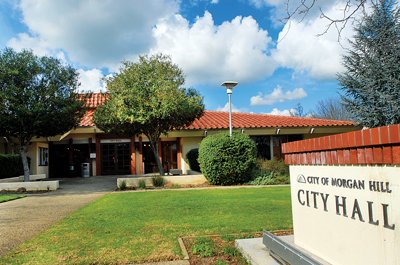Nearly a year after the bulk of construction on the Third Street
Promenade was completed, numerous change orders and repairs
necessitated by faulty work by the contractor, the city council
approved the $3.6-million project.
Nearly a year after the bulk of construction on the Third Street Promenade was completed, numerous change orders and repairs necessitated by faulty work by the contractor, the city council approved the $3.6-million project.
The final cost of the redevelopment project accepted by the council included about $294,000 worth of change orders for unforeseen work that was determined to be needed after construction started.
But the final acceptance of the Third Street makeover was met with opposition at Wednesday’s council meeting from council member Marby Lee, who has consistently objected to the city’s policy that determines when potentially costly change orders should come back to the council for approval.
Lee, who is running for mayor, thinks that policy should be updated.
“I’m just concerned about the lack of oversight,” Lee said.
A list of 21 change orders throughout the year of construction on Third Street were presented to the council at Wednesday’s meeting, but were not individually approved by the council before they were completed.
The total cost for the changes – about $294,000 – fell within the “contingency budget” for the project, city staff said. The contingency budget of about $350,000 was about 10 percent of the contract cost, and was approved unanimously by the council with the contract in May 2009.
The bulk of construction on Third Street was completed by January. Minor changes and additions – including the repair of loose tiles at the intersection of Monterey Road at the contractor’s expense – have been made in the last 10 months.
The city’s policy on change order approval for capital improvement projects such as Third Street is that as long as the cost of all the changes is lower than the contingency allowance, the work does not require further council approval, interim public works director Karl Bjarke said.
When the cost of changes exceeds 50 percent of the approved contingency budget, they require approval by the city manager but not the council, Bjarke added.
In the case of Third Street, the cost of change orders exceeded half the contingency allocation, but did not surpass the total and therefore did not go back to the council.
Lee disagrees with the policy, and has since last year when a staff report she requested found that in the previous five years about $200,000 worth of construction projects, and about $1.4 million worth of contracts had been executed without express council approval.
While Bjarke said the council “reaffirmed” the change order policy for capital improvement projects in August 2009, it was done so on a 4-1 vote with Lee opposed.
Lee’s position is that every city project or purchase that is anticipated to cost more than $25,000 should be presented to the council for approval. Two of the 21 change orders on Third Street cost more than $25,000, forming the crux of Lee’s opposition. One of those was a $61,000 cost for skateboard stoppers on curbs, bollards, decorative boulders and other items. The other was a $37,000 bill for paver cleaning, sound equipment, seal planter walls and “misc. change orders,” noted the staff report presented Wednesday.
While those items appear to be unrelated, they were lumped into two change orders “for the sake of efficiency,” Bjarke explained.
In a separate category of city expenses – purchase orders – the city does require council approval for individual costs exceeding $25,000, Bjarke explained. Purchases that cost less than that can be approved by the city manager. “But that’s different from capital improvement projects,” Bjarke said.
Lee acknowledged that her vote won’t change the cost of the project or improve oversight without more support among other council members.
“In the scheme of $3.6 million, it’s a small percentage, but it adds up (on other projects),” Lee said. “It was at least a protest, and I was bringing it up that we still do this. Should we just say, ‘It’s fine’?”
She added that she doesn’t understand the tension that sometimes boils up among her colleagues when she questions the costlier change orders.
Mayor Steve Tate, who is running for reelection, said Thursday he would question expenses carried out on the staff’s whim if they were “out of line,” but that didn’t happen on the Third Street project.
He became frustrated when asked if he knew when the change order budget for Third Street was approved.
“I’m not researching something that I think was a total non-issue,” Tate said.
During the council’s discussion Wednesday, council member Larry Carr repeatedly asked Lee if she had a solution to what she saw as a lack of oversight. He suggested that if every change order was presented to the council for approval before it was executed, the project could have been delayed further.
After the meeting, Carr said, “It’s easy to vote ‘No,’ it’s hard to offer solutions.”
The third candidate for mayor, former city manager and finance director Art College, agreed that if costs on large projects run more than 10 percent over budget, they should go back to the council for approval.
In a more general sense, College was opposed to the Third Street Promenade project.
“Putting the money into the ground on Third Street was not the best choice of the use of RDA dollars,” College said. “It should have gone to the merchants downtown to improve their store fronts and attract people to the businesses downtown.”
The project was funded in part by a $1.7 million grant from the Metropolitan Transportation Commission; the remainder came from local RDA funds.














